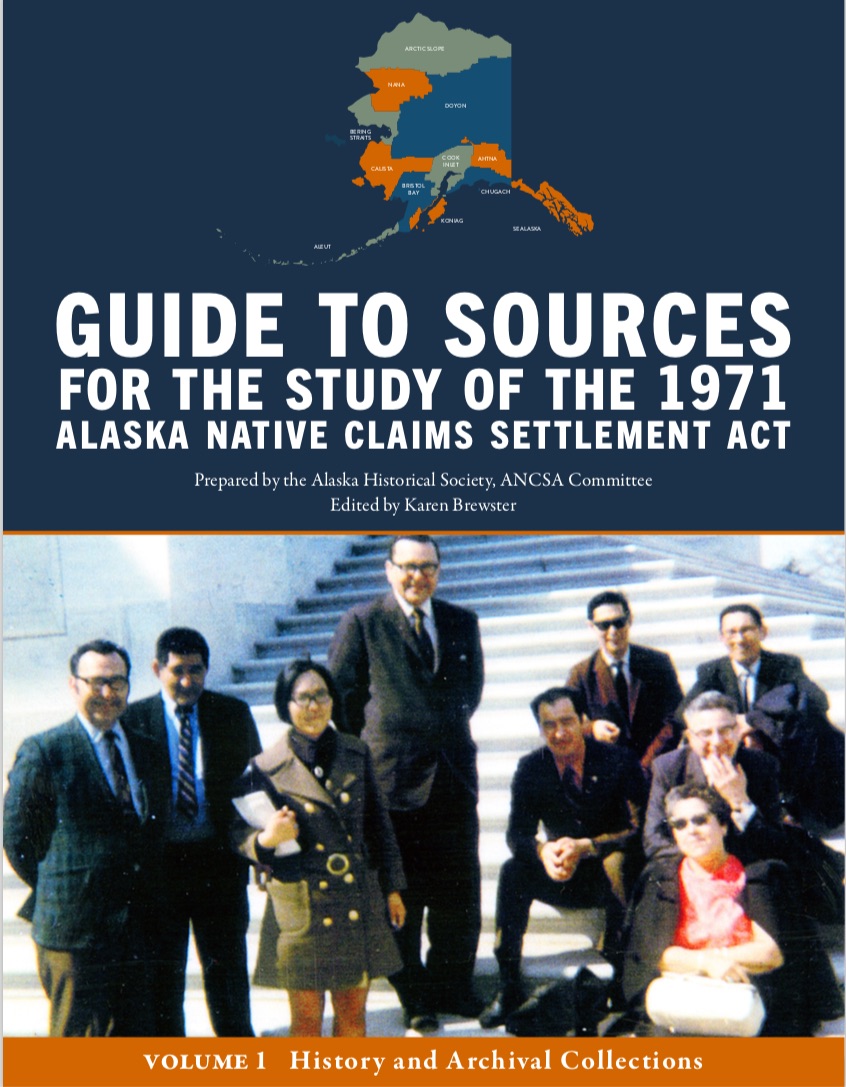Launch of ĂŰĚŇÓ°Ďń Native Claims Settlement Act Project Jukebox
In recognition of the 50th Anniversary of the signing of the ĂŰĚŇÓ°Ďń Native Claims Settlement Act (ANCSA) in December 1971, the ĂŰĚŇÓ°Ďń Oral History Program has just launched the ĂŰĚŇÓ°Ďń Native Claims Settlement Act Project Jukebox online interactive that combines oral history recordings, film, photos and documents to tell the story behind the fight for passage of ANCSA, its role in ĂŰĚŇÓ°Ďń’s history, and its legacy.
The ANCSA legislation, which passed Congress and was signed into law by President Richard Nixon in 1971, resolved long-standing issues surrounding aboriginal land claims in ĂŰĚŇÓ°Ďń and stimulated long-lasting economic development through the allocation of 44 million acres of land and nearly $1 billion to ĂŰĚŇÓ°Ďń Native corporations.
The ĂŰĚŇÓ°Ďń Native Claims Settlement Act Project Jukebox emphasizes the recollections of people who are important to the Native land claims movement, and is an opportunity to recognize those who worked to bring about this settlement, to assess the legislation that was created, and to evaluate impacts fifty years later. The story of ANCSA has been written in many published works, however, hearing from the people in their own words about their struggles, their successes, and what actually happened offers a richer and more personal experience. By listening to these first-hand accounts, students of land claims can better understand what their leaders went through to build a better world. It includes: ten new oral history interviews with those involved in the passage of ANCSA whose stories have not yet been heard or who reflect on its longer-term legacies; a few historically important archival recordings of key leaders of the land claims movement; and links to ANCSA-related film clips in the ĂŰĚŇÓ°Ďń Film Archives.
Funding for the ĂŰĚŇÓ°Ďń Native Claims Settlement Act Project Jukebox was provided by the ĂŰĚŇÓ°Ďń State Library through an Interlibrary Cooperation Grant based on American Rescue Plan Act (ARPA) funds.
The ĂŰĚŇÓ°Ďń Native Claims Settlement Act Project Jukebox also includes a link to the Guide to Sources for the Study of the 1971 ĂŰĚŇÓ°Ďń Native Claims Settlement Act, which is a comprehensive guide to historical sources about the landmark ANCSA legislation recently completed by the ĂŰĚŇÓ°Ďń Historical Society (AHS). The three-volume, nearly 1,200-page guide identifies the vast majority of documents in existence about the historic claims act legislation located in archives, libraries, personal collections and on-line from ĂŰĚŇÓ°Ďń to Washington, D.C. It serves as the premier information gateway for researchers, historians, students, and anyone else interested in the fascinating history of how the largest land claims settlement in U.S. history became law.
The project was a special initiative of the ĂŰĚŇÓ°Ďń Historical Society to contribute to commemoration of the 50th anniversary of ANCSA’s passage. William Schneider, emeritus professor of anthropology at ĂŰĚŇÓ°Ďń, served as project director, and Karen Brewster, research associate with ĂŰĚŇÓ°Ďń’s Project Jukebox, served as editor.
The AHS spent more than two years identifying documents about the act and detailing where they are located and how they can be accessed, including 19 collections in ĂŰĚŇÓ°Ďń’s ĂŰĚŇÓ°Ďń and Polar Regions Collections & Archives, as well as holdings of the ĂŰĚŇÓ°Ďń Film Archives and Oral History Collection at Elmer E. Rasmuson Library. The project unearthed numerous fascinating “gems” leading to passage of the act, such as:
- A 20-page report about the first statewide meeting of ĂŰĚŇÓ°Ďń Native leaders in Anchorage in 1966 that laid the groundwork for establishment of the ĂŰĚŇÓ°Ďń Federation of Natives.
- A 1970 speech by President Nixon on Indian policy in which he called for a new approach to the federal treatment of Native people, a historic change from termination to self-determination.
- A speech by Dr. Henry Forbes, whose financial backing helped establish the Tundra
Times and who worked with Howard Rock, the newspaper’s founder and editor.

Cover of Volume 1 of the Guide to Sources for the Study of the 1971 ĂŰĚŇÓ°Ďń Native Claims Settlement Act.
The guide is organized into three separate documents for ease of use.
Volume 1 includes an essay on the history of ANCSA, a timeline, a list of key participants in the land claims movement, and an inventory of primary sources about the act detailing where specific historic documents are housed and how to view them. Sites include university, state and national archives, presidential libraries, museums, on-line databases and agencies such as the National Park Service.
Volume 2 is an annotated bibliography of published and unpublished sources of information about the act including books, articles, films, websites, major archival collections and even college theses and term papers. For example, it includes the college research paper Iñupiaq leader Willie Hensley wrote in 1966 for a ĂŰĚŇÓ°Ďń course that brought to light the legal reasons Natives had a claim to land.
Volume 3 is a resource for educators wanting to teach about ANCSA and features curriculum approaches and key questions to pursue with their students.
The guide is a fully searchable and navigable electronic PDF document available on a digital repository for University of ĂŰĚŇÓ°Ďń research.


